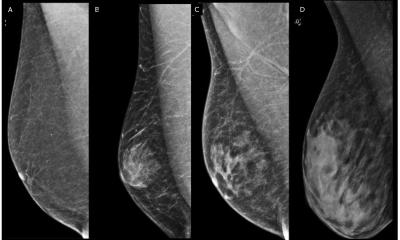Article • Session on sex differences
Championing gender-sensitive medicine
A session at the Medica Health IT Forum will focus on the important topic of gender-sensitive medicine and raise critical points within the field. While a key challenge remains in raising awareness and acceptance that there are medical differences between men and women, session chair Dr Martina Kloepfer points out that gender-sensitive medical care is the ‘lowest common denominator of personalised medicine.’
By Mark Nicholls
Image source: Adobe Stock/Styles and Curious
The core topic of the session at the Düsseldorf trade fair on November 17 will be “sheHealth: Will new trends like FemTech, Women’s health and Female Entrepreneurship break up established structures?” As founder of the Institute for Gender Health, Kloepfer explains: ‘During the discussion, we will concentrate on the gender data gap and its consequences, as well as on the difficulties “female” start-ups are facing raising capital.’ The speakers will also dive into the different needs of female and male patients and whether there is a difference between male and female developers.
LGBTQ inclusion

Image source: GandHI - Globalisation and Health Initiative
While gender-sensitive medicine focuses mainly on the particular needs of men and women, more recently that has also extended to the needs of LGBTQ patients. ‘We have to consider the sex differences caused by biological and physiological differences and the differences caused by society, education and socialisation,’ Kloepfer added. ‘For example, lifestyle – which is often shaped by socialisation – has a great influence on health behaviour.’
The expert also feels that awareness has increased in recent years, even though the situation may differ widely depending on the country. ‘In Germany, we need to implement gender-sensitive medicine into the regular curriculum of a medical degree course as well as into further training, because research shows that gender-sensitive aspects play a role in most indications.’
Diagnostic bias on the heart and psyche
There is still a lack of awareness and, to some extent, acceptance that men can also have mental illnesses
Martina Kloepfer
She further emphasised the need for doctors to be aware that a disease may manifest itself differently in men and women. ‘Women are still underdiagnosed with acute myocardial infarction, yet most women die of cardiovascular disease – not breast cancer, as many believe,’ she said. ‘Men, on the other hand, are underdiagnosed with mental illnesses because there is still a lack of awareness and, to some extent, acceptance that men can also have mental illnesses.’
The example of mental illness and depression showcases the importance of the matter, as earlier recognition of these issues in men and male-specific treatment might contribute to the reduction of the suicide rate among men in Germany – which currently is three times higher than in women. Such gender differences can also be seen in organs such as the liver, heart, or kidneys.
Recommended article

News • Clinical cardiovascular trials
Women still underrepresented in CVD research
Women remain underrepresented in cardiovascular clinical trials despite guidelines and legal requirements developed almost 30 years ago to ensure broader inclusivity. This lack of representation can limit availability of treatment data on the number one killer of women worldwide—cardiovascular disease.
From the “male standard” towards a “female rediscovery”
Another issue is that gender medicine is often perceived as being equivalent to “women’s medicine,” Kloepfer points out: ‘Gender medicine encompasses (at least) men’s and women’s health. Until now, the male body has been the benchmark in medicine, and – to some extent – still is; for example, in the development of medicines. But the pendulum is now swinging towards the “rediscovery” of the female body. In the future, the ratio will level out. I very much hope that gender medicine will become a cross-sectional subject in medicine and a natural part of diagnosis and therapy.’
A further step she would like to see is equal numbers of male and female professors in order to advance gender medicine in universities and in research.
*MEDICA HEALTH IT FORUM: Gender-sensitive medicine, 12noon-1pm (CET) on November 17 is chaired by Dr Martina Kloepfer from the Institute for Gender Health and features a range of speakers on the topic.
Profile:
Dr Martina Kloepfer launched the Federal Congress for Gender Health in Berlin in 2013 with her husband, Dr Albrecht Kloepfer, with the Institute for Gender Health emerging from this as a platform to reflect the topic into politics and to continue to raise awareness and bring together different perspectives and issues.
10.11.2022





